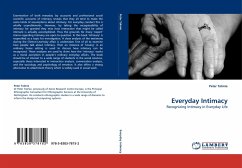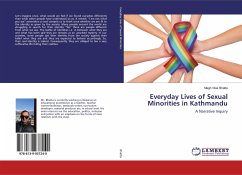Examination of both everyday lay accounts and professional social scientific accounts of intimacy reveals that they all tend to make the same kinds of assumptions about intimacy. For everyday conduct this is wholly unproblematic. However, by taking the recognizability of intimacy for granted they miss how interaction that might be called intimate is actually accomplished. Thus the grounds for many expert'' claims regarding intimacy are open to question. In this book intimacy'' is respecified as a topic for investigation. A close analysis of the testimony during the Clinton-Lewinsky affair is undertaken first of all to examine how people talk about intimacy. Then an instance of kissing'' in an ordinary home setting is used to discuss how intimacy can be recognized. These analyses are used to show how the intimacy'' works as a moral ascription in people''s ordinary everyday affairs. The book should be of interest to a wide range of students in the social sciences, especially those interested in interaction analysis, conversation analysis, and the sociology and psychology of emotion. It also offers a strong alternative to attachment theory which is widely-used in social work.
Bitte wählen Sie Ihr Anliegen aus.
Rechnungen
Retourenschein anfordern
Bestellstatus
Storno








